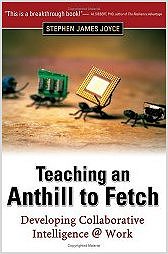When we think of Collaborative Intelligence in action one of the things that comes to mind is Wikipedia. With a reliability that compares favorably with the Encyclopedia Britannica, Wikipedia is championed as the intelligence of the crowd, made available to the crowd. An interesting post by Chris Wilson at ‘Slate’ takes a slightly different view:
‘Social-media sites like Wikipedia and Digg are celebrated as shining examples of Web democracy, places built by millions of Web users who all act as writers, editors, and voters. In reality, a small number of people are running the show. According to researchers in Palo Alto, 1 percent of Wikipedia users are responsible for about half of the site’s edits. The site also deploys bots—supervised by a special caste of devoted users—that help standardize format, prevent vandalism, and root out folks who flood the site with obscenities. This is not the wisdom of the crowd. This is the wisdom of the chaperones.’
That 1% sounds suspiciously like the small number of individuals in a beehive that act as ‘diversity generators’. Diversity generators are a small % of the hives work force and their task is to go and forage for new sources of honey. While the majority of the hive take off on their daily commute to known locations of honey, diversity generators plug away at the new and novel ultimately producing the locations of new nectar deposits. If you are curious about how we know bees operate in this way you might like to check out Howard Blooms ‘Global Brain’.
















No comments yet.